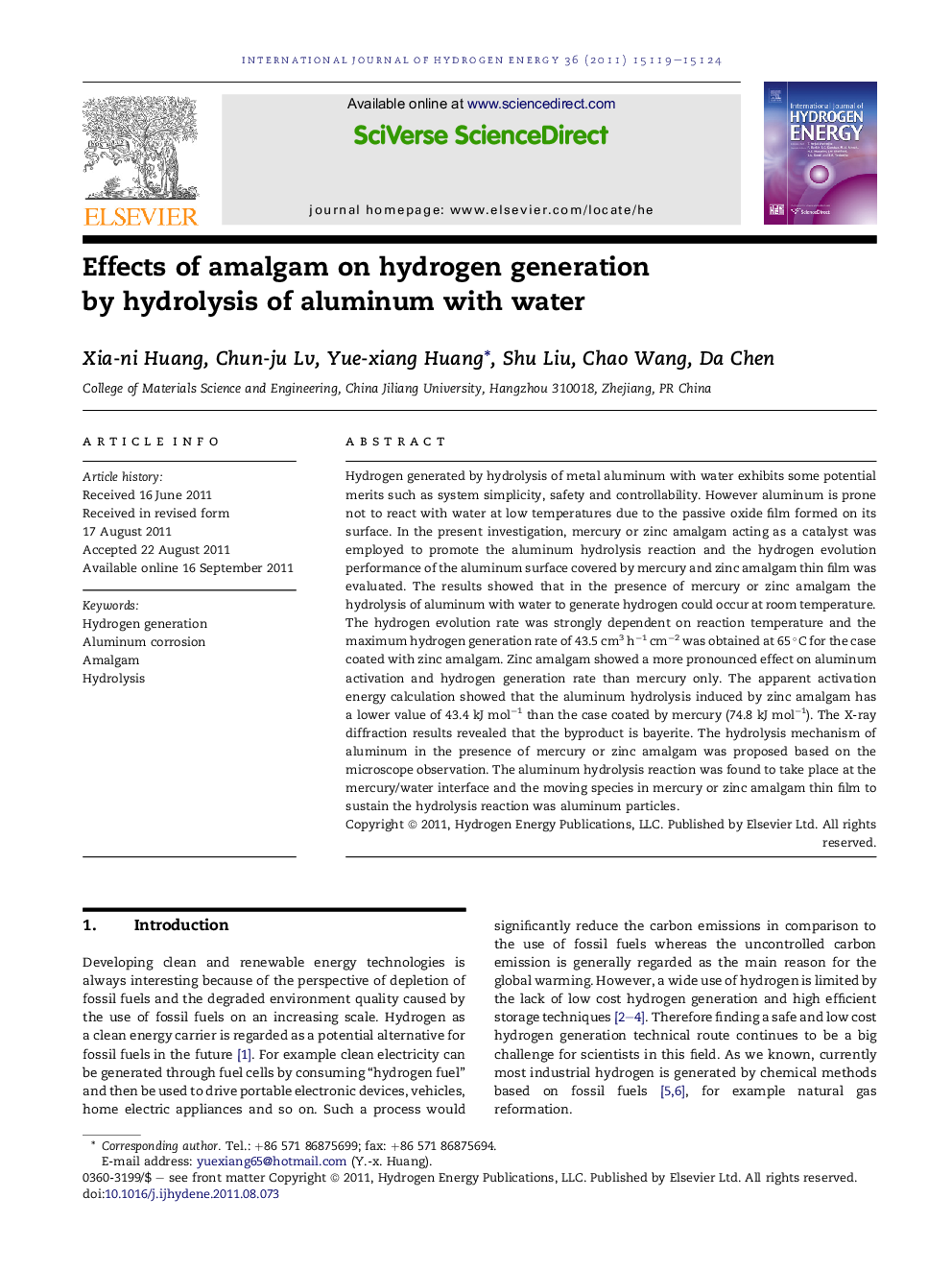| Article ID | Journal | Published Year | Pages | File Type |
|---|---|---|---|---|
| 1271803 | International Journal of Hydrogen Energy | 2011 | 6 Pages |
Hydrogen generated by hydrolysis of metal aluminum with water exhibits some potential merits such as system simplicity, safety and controllability. However aluminum is prone not to react with water at low temperatures due to the passive oxide film formed on its surface. In the present investigation, mercury or zinc amalgam acting as a catalyst was employed to promote the aluminum hydrolysis reaction and the hydrogen evolution performance of the aluminum surface covered by mercury and zinc amalgam thin film was evaluated. The results showed that in the presence of mercury or zinc amalgam the hydrolysis of aluminum with water to generate hydrogen could occur at room temperature. The hydrogen evolution rate was strongly dependent on reaction temperature and the maximum hydrogen generation rate of 43.5 cm3 h−1 cm−2 was obtained at 65 °C for the case coated with zinc amalgam. Zinc amalgam showed a more pronounced effect on aluminum activation and hydrogen generation rate than mercury only. The apparent activation energy calculation showed that the aluminum hydrolysis induced by zinc amalgam has a lower value of 43.4 kJ mol−1 than the case coated by mercury (74.8 kJ mol−1). The X-ray diffraction results revealed that the byproduct is bayerite. The hydrolysis mechanism of aluminum in the presence of mercury or zinc amalgam was proposed based on the microscope observation. The aluminum hydrolysis reaction was found to take place at the mercury/water interface and the moving species in mercury or zinc amalgam thin film to sustain the hydrolysis reaction was aluminum particles.
► Hydrogen can be generated by hydrolysis of aluminum with neutral water at room temperature. ► Zinc amalgam has a better activation effect on the aluminum hydrolysis reaction than mercury. ► The hydrogen evolution rate was strongly dependent on reaction temperature.
